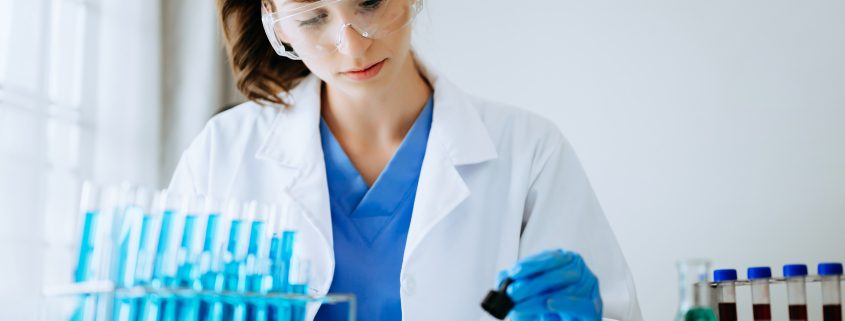Eight Common Misconceptions About TMS Therapy for Depression
Transcranial Magnetic Stimulation (TMS) is the most passive yet effective treatment available for depression, anxiety, PTSD, OCD, and schizophrenia. However, there are a lot of misconceptions about this treatment option.
Our psychiatric providers often recommend TMS to patients for a variety of reasons, but patients are often hesitant to give it a try because they are concerned about something they have heard about it. Often, the concerns of our patients are quickly resolved once they speak to their mental health provider.
If you or someone you know is hesitant to try TMS therapy for depression or other mental health conditions, read more about the eight common misconceptions below.
Misconception #1:
“TMS is the same as Electroconvulsive Therapy (ECT)”
Fact:
TMS therapy for depression is an entirely different treatment modality than ECT. Both treatments address treatment-resistant depression, but that is where the similarities end. ECT deliberately triggers a controlled seizure passing a small electrical current through the brain. General anesthesia is necessary for this procedure, and patients may experience confusion and memory loss immediately following the treatment.
TMS is a much milder treatment that uses electromagnetic pulses (similar to an MRI machine) to stimulate parts of the brain that are underactive in people with treatment-resistant depression. No sedation is necessary for TMS, and the patient is fully awake and alert throughout the process. TMS patients are immediately cleared to resume their daily activities, such as driving or returning to work because there is no recovery time required after treatment.
Misconception #2:
“TMS works immediately.”
Fact:
While some patients may report an improvement in their symptoms within the first week, TMS therapy for depression is not intended to offer immediate relief from depressive symptoms. Most patients can expect to begin noticing improvements within 3-4 weeks of their first TMS treatment. This timeline for improvements is similar to that of a medication trial.
Misconception #3:
“TMS is painful.”
Fact:
TMS treatments consist of tiny electromagnetic pulses that are administered through a figure 8 coil. Your TMS provider positions the coil to rest lightly on your scalp. While TMS treatments do create a clicking sound and an odd sensation on the scalp, it should not be painful. Patients have described TMS as “a tiny woodpecker” or similar to “a TENS unit on my head”.
If you experience discomfort, your technician can make adjustments to make the experience more comfortable. For example, your TMS provider may lower the intensity of the pulses or adjust the placement of the coil.
Misconception #4:
“TMS patients must stop taking all their medications.”
Fact:
Almost all medications are safe to take while you are receiving TMS therapy for depression. The only exception is medications that lower seizure thresholds, such as Wellbutrin.
Patients are urged to abstain from street drugs and alcohol during the course of their treatment since those also carry the risk of lowering their seizure threshold.
Misconception #5:
“TMS is new and unproven.”
Fact:
The technology behind TMS dates to the 1980s and has been FDA-approved for severe depression since 2008 after many studies proved that it is a safe and effective treatment. TMS is also FDA-approved for OCD and smoking cessation. Tens of thousands of patients have been successfully treated with TMS.
TMS is one of the safest mental health treatments and is one of the best options for pregnant patients.
Misconception #6:
“TMS is too expensive.”
Fact:
For most patients, TMS therapy is covered by insurance. Most insurance companies will cover all or part of the cost of TMS treatments due to their low risk and high success rate.
We accept Medicare Part B with a qualifying secondary insurance or supplemental plan. Read our blog for more information about Medicare’s coverage of TMS therapy, including does Medicare cover Transcranial Magnetic Stimulation?
Misconception #7:
“TMS is too time-consuming.”
Fact:
It is true that TMS is administered daily for 30 treatments plus a taper phase. However, after the initial appointment, most appointments are only 30 minutes. Since TMS is a non-invasive procedure, patients are able to drive themselves home and immediately resume daily activities. Your Rapid City TMS provider will do everything possible to accommodate work schedules and other appointments.
TMS can provide lasting depression relief. Depression medications, on the other hand, typically must be taken daily for the rest of your life. TMS could give you the relief you are looking for without the side effects that are often experienced with antidepressant medications. The time that you commit to yourself with these treatments
Misconception #8:
“TMS can alter my personality or destroy my memory.”
Fact:
TMS targets a very small area of the brain that is underactive in patients with chronic depression. This treatment is very mild, and the intensity of the treatment is carefully monitored. The areas of the brain responsible for processing and storing memories are out of range of the pulses, leaving them unimpacted by the treatment. This also holds true for concerns about TMS therapy for depression altering a patient’s personality.
TMS is a safe and effective treatment option for most patients with depression, anxiety, PTSD, OCD, and schizophrenia. If you have not yet spoken to a mental health provider to see if TMS is right for you, give us a call to schedule an initial appointment with one of our mental health providers in Rapid City, SD.
If TMS is not the right fit for your needs, Manlove Brain and Body Health offers a full spectrum of psychiatric interventions, including cutting-edge treatment options. Our team is here to help you find the right fit for your mental health needs.

Stephen Manlove, MD graduated from the University of Minnesota Medical School and completed residencies in Psychiatry and Internal Medicine through the University of Virginia Medical School. He holds multiple board certifications in psychiatry/neurology, internal medicine and forensic psychiatry. This deep understanding of medicine gives him a unique ability to practice truly holistic psychiatry—fusing lifestyle changes and brain health best practices with genetic testing and a detailed laboratory workup to develop a personalized plan for each patient. As an early adopter of transcranial magnetic stimulation (TMS) and ketamine/Spravato, he and the Manlove Brain + Body team have helped thousands of patients suffering from treatment resistant depression, anxiety and PTSD.











